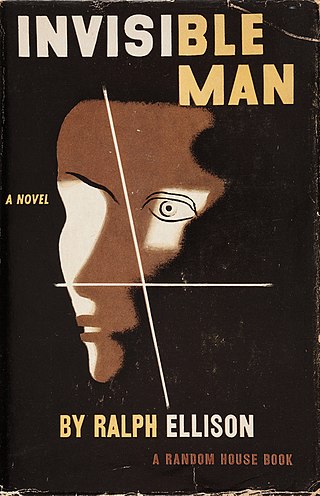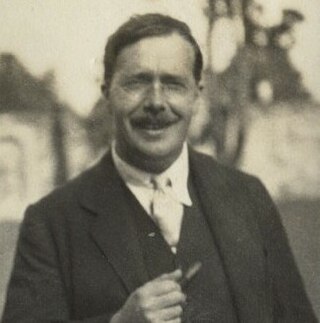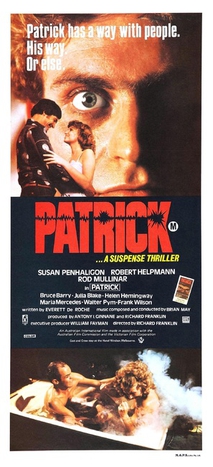Tack is equipment or accessories equipped on horses and other equines in the course of their use as domesticated animals. This equipment includes such items as saddles, stirrups, bridles, halters, reins, bits, and harnesses. Equipping a horse is often referred to as tacking up, and involves putting the tack equipment on the horse. A room to store such equipment, usually near or in a stable, is a tack room.

Native Son (1940) is a novel written by the American author Richard Wright. It tells the story of 20-year-old Bigger Thomas, a black youth living in utter poverty in a poor area on Chicago's South Side in the 1930s. Thomas accidentally kills a white woman at a time when racism is at its peak and he pays the price for it.

The Go-Between is a novel by L. P. Hartley published in 1953. His best-known work, it has been adapted several times for stage and screen. The book gives a critical view of society at the end of the Victorian era through the eyes of a naïve schoolboy outsider.

James Arthur Baldwin was an American writer and civil rights activist who garnered acclaim for his essays, novels, plays, and poems. His 1953 novel Go Tell It on the Mountain has been ranked among the best English-language novels. His 1955 essay collection Notes of a Native Son helped establish his reputation as a voice for human equality. Baldwin was a well-known public figure and orator, especially during the civil rights movement in the United States.

Clifford Henry Benn Kitchin was a British novelist of the early twentieth century.

Invisible Man is Ralph Ellison's first novel, the only one published during his lifetime. It was published by Random House in 1952, and addresses many of the social and intellectual issues faced by African Americans in the early 20th century, including black nationalism, the relationship between black identity and Marxism, and the reformist racial policies of Booker T. Washington, as well as issues of individuality and personal identity.

Leslie Poles Hartley was an English novelist and short story writer. Although his first fiction was published in 1924, his best-known works are the Eustace and Hilda trilogy (1944–1947) and The Go-Between (1953). The latter was made into a film in 1971, as was his 1957 novel The Hireling in 1973.

Gary Malcolm Wright was an American musician and composer best known for his 1976 hit songs "Dream Weaver" and "Love Is Alive". Wright's breakthrough album, The Dream Weaver (1975), came after he had spent seven years in London as, alternately, a member of the British blues rock band Spooky Tooth and a solo artist on A&M Records. While in England, he played keyboards on former Beatle George Harrison's triple album All Things Must Pass (1970), so beginning a friendship that inspired the Indian religious themes and spirituality inherent in Wright's subsequent songwriting. His work from the late 1980s onwards embraced world music and the new age genre, although none of his post-1976 releases matched the same level of popularity as The Dream Weaver.
Gregory Woods is a British poet. He was the Chair in Gay and Lesbian Studies at Nottingham Trent University from 1998 to 2013. He is the author of five books of literary and LGBT studies criticism, and seven poetry collections.

"Lot No. 249" is a Gothic horror short story by British writer Arthur Conan Doyle, first published in Harper's Magazine in 1892. The story tells of a University of Oxford athlete named Abercrombie Smith who notices a strange series of events surrounding Edward Bellingham, an Egyptology student who owns many ancient Egyptian artefacts, including a mummy. After seeing his mummy disappear and reappear, and two instances of Bellingham's enemies being attacked, Smith concludes that Bellingham is re-animating his mummy.

Patrick is a 1978 Australian science fiction horror film directed by Richard Franklin and written by Everett De Roche. The film popularised Ozploitation films in other territories. A remake was released in 2013.
David Stuart Horner was a crime fiction novelist and the longtime partner of Osbert Sitwell.

Poor Clare is a 1968 novel by the British writer L.P. Hartley. After inheriting some fine works of art from his aunt, a composer surprises everyone when he gives them away to his friends, leading all to wonder if there is some ulterior motive.

The Betrayal is a 1966 novel by the British writer L.P. Hartley. It is a sequel to his 1964 work The Brickfield in which an elderly novelist recounts the experiences of his life for his memoirs.

The Will and the Way is a 1973 novel by the British writer L.P. Hartley. It was his final novel, published posthumously following his death in 1972.

My Sisters' Keeper is a 1970 novel by the British writer L.P. Hartley.

The Boat is a 1949 novel by British writer L.P. Hartley. An English writer returns home from Venice, and takes residence in a house by a river where he can indulge his passion in rowing.

Simonetta Perkins is a 1925 novella by the British writer L. P. Hartley. A young Bostonian woman visiting Venice with her overbearing mother quickly tires of her fellow American tourists and begins to fixate on a handsome gondolier.

The Hireling is a 1957 novel by the British writer L.P. Hartley. A widowed aristocrat bonds with the ex-soldier who drives his own car in a chauffeur service.

Eustace and Hilda is a 1947 novel by the British writer L.P. Hartley. It was the third in a trilogy of novels, following The Shrimp and the Anemone (1944) and The Sixth Heaven (1946), which are collectively known as the Eustace and Hilda Trilogy.















